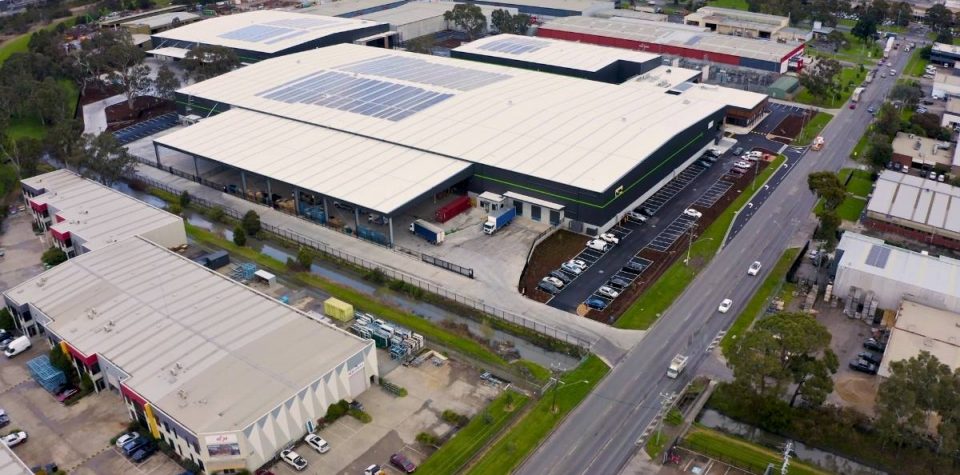Table of Contents:
- Dispelling the Cloudy Misconception
- What Is Cloud Computing?
- Transforming Logistics with Cloud Computing
- Send Your Logistics Systems Skyward
Discover how to keep your digital logistics systems grounded by using the cloud.
In the ever-evolving world of logistics, staying ahead of the game is essential. These days, having access to powerful digital systems to run your logistics business is vital. One technological advancement that has revolutionised the industry is cloud computing. But what exactly is cloud computing, and how is it transforming logistics operations in Australia?
In this article we’ll take a look at cloud computing and how it can function in perfect sync with logistics software systems. But before we get going, let’s clarify exactly what cloud computing is.
Dispelling the Cloudy Misconception
Before we dive deeper, let’s clear the air on one thing: cloud computing isn’t actually up in the clouds. You won’t find data centres hovering among the cumulus clouds above Uluru or servers sharing the skies with the birds of Ballarat.
Cloud computing is all about powerful, interconnected, land-based servers and infrastructure: not fluffy white masses. Cloud computer data storage and operations processing takes place in giant server farms dotted across the globe. And while its name might make it seem like it’s up in the clouds, the impact of cloud computing on logistics in Australia is very much down-to-earth and substantial.
Now, with that little misnomer out of the way, let’s carry on and discover how cloud computing is revolutionising the industry!
What Is Cloud Computing?
Cloud computing is a technology that allows organisations to access and manage data, applications, and resources over the internet, rather than relying solely on on-premises servers or local hardware. It’s like having a virtual powerhouse of computing capability at your fingertips, with the ability to scale resources as needed.
In the context of logistics, cloud computing provides a centralised platform where data can be stored, processed, and accessed securely from anywhere with an internet connection. This accessibility and flexibility bring a myriad of benefits to the logistics industry in Australia.
Transforming Logistics with Cloud Computing
Real-Time Data Accessibility
Cloud computing enables logistics companies to access real-time data from various sources, such as IoT sensors, GPS tracking, and inventory systems. In a vast country like Australia, where supply chains span great distances, having up-to-the-minute information is invaluable. It allows for better decision-making, optimised routes, and proactive issue resolution.
Scalability
One of the key advantages of cloud computing is scalability. Logistics companies can expand or shrink their computing resources based on demand. During peak seasons or rapid growth, they can easily scale up their operations without the need for significant hardware investments. This flexibility ensures smooth operations even in the face of fluctuating demand.
Cost-Efficiency
Traditional logistics operations often require substantial upfront investments in physical infrastructure and maintenance. Cloud computing eliminates much of this overhead. Companies only need to pay for the computing resources they use, making it a cost-effective option for logistics operations of all sizes.
Enhanced Collaboration
With cloud-based logistics software, teams can collaborate seamlessly, whether they’re in the same warehouse or on opposite sides of the country. This level of collaboration streamlines communication channels, reduces errors, and ensures that everyone is on the same page, no matter where they are.
Security and Data Backup
Cloud providers prioritise security, often implementing stringent measures to protect data. This is crucial in an industry that deals with sensitive information and customer data. Additionally, data is regularly backed up, reducing the risk of data loss due to unforeseen events.
Send Your Logistics Systems Skyward
Cloud computing is more than just a technological buzzword; it’s a game-changer for the logistics industry in Australia. It offers real-time data accessibility, scalability, cost-efficiency, enhanced collaboration, and robust security.
As logistics companies continue to navigate the challenges of Australia’s long supply chains, crowded urban spaces and diverse terrains, cloud computing is rapidly becoming indispensable, ensuring they stay on track and ahead of the curve in this ever-evolving landscape. The future of logistics in Australia is undoubtedly in the cloud!



